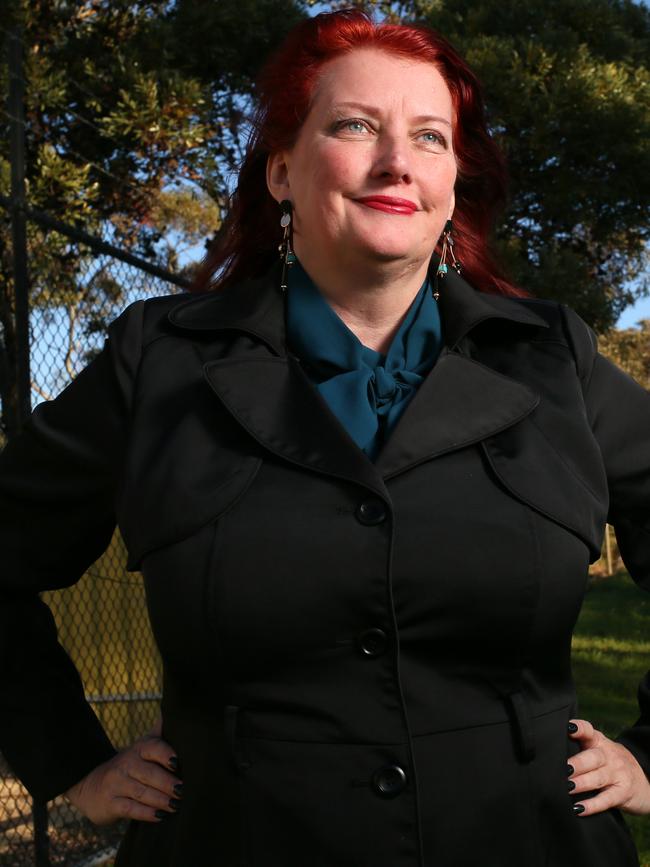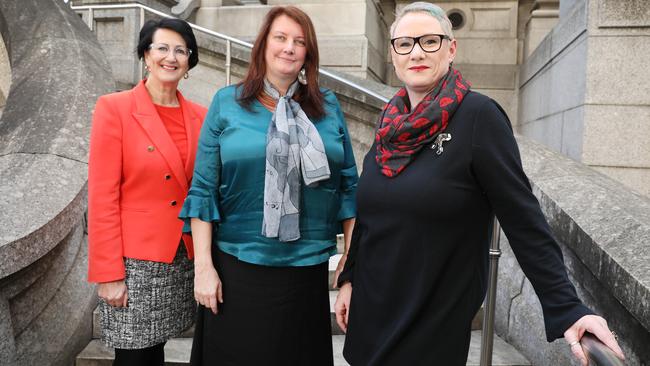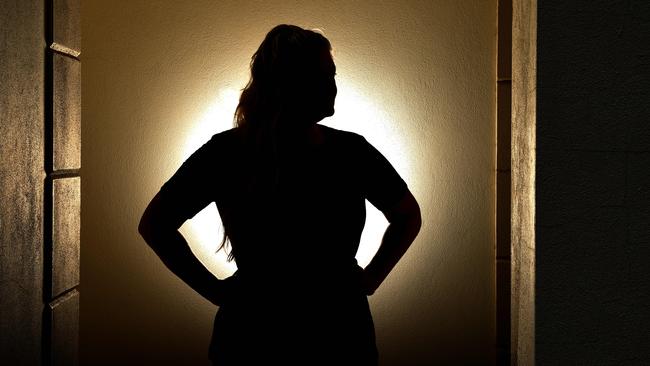Sex workers say laws are lagging behind behind ‘internet-age brothels’ and unfairly penalising prostitutes
Sex workers providing “Uber” style services in internet age hotel brothels say they are being unfairly penalised by a law that predates the invention of the internet.
SA News
Don't miss out on the headlines from SA News. Followed categories will be added to My News.
An Adelaide magistrate, lawyers, politicians and sex workers have raised concerns over the use of a 65-year-old law unfairly penalising prostitutes, particularly those providing “Uber” style prostitution through “internet-age brothels”.
A series of historical judgments by South Australian Deputy Chief Magistrate Andrew Cannon, viewed by the Sunday Mail this week, has been used by advocates as yet another example of the need for law reform.
There is currently a private member’s Bill to decriminalise sex work in South Australia waiting for debate in the Upper House.
It was tabled by Greens MLC Tammy Franks in May.


In a judgment made in September last year, Mr Cannon described “internet-age brothels” as those involving the remote management of sex workers who book a hotel room, pay cash for it and provide paid services in it.
He said this “flat management” style brothel had resulted in more serious police charges against sex workers who were often “not the criminal mind behind the organisation at whom the more serious penalties are designed to apply”.
“The prostitute takes the money and she provides the service,” he told the court.
“However, under the law as it exists, she is also involved in managing a brothel, so it attracts more serious penalties.
“It is a sort of Uber model of prostitution, where the young woman is the taxi company as well as the driver.”

In a similar case, Mr Cannon said: “Although police have a very important and legitimate exercise in trying to catch the real villain here, I am dealing with a woman who has provided a sexual service, but because of the internet model that is being used to provide that service she is deemed to be the person who assisted in keeping and managing a brothel.”
While paid sex is not illegal in SA, under the Summary Offences Act 1953, sex workers can face maximum penalties of up to $2500 and two years’ imprisonment for charges often related to paid sex in a brothel.
Ms Franks said current SA legislation, among the most archaic and oldest in the country, failed to appropriately define a brothel.
She said brothels in some states were defined by law as being a certain, larger operation and highlighted the need to modernise SA’s law.
Ms Franks said sex workers in SA were being forced to work alone underground to avoid the increasingly heavy hand of police enforcing the current law.
A Women Lawyers’ Association of SA spokeswoman said increased law enforcement of the sex industry was resulting in more punitive charges against sex workers being laid, including money laundering.
“Sex worker organisations have told us that they are continuing to be targeted for a number of offences now more than ever before,” she said.
Sex Industry Network Manager Sharon Jennings said she was concerned by the escalating severity of charges against sex workers in SA.
“The charge of money laundering is one that has been used on numerous occasions by SAPOL in the last couple of years, and it is not one that we have seen levied at sex workers in the past,” she said.
“It appears to be a new approach, and we are in the dark as to why this change has occurred.”
Of the 211 sex-related charges laid by SA police against sex workers in 2017/18 – almost half were for keeping and managing a brothel, latest SA police data provided to The Advertiser in July showed.
Police data tabled in parliament in 2017 showed the number of sex work-related charges laid in a single calendar year has not exceeded 75 in the past 10 years.

Chief Inspector Greg Hutchins, officer in charge of the SA Police Licensing Enforcement Branch, said SA police were responsible for enforcement of the state’s laws as they stand.
He said detectives had been investigating crime syndicates allegedly laundering money through the sex industry in addition to investigations triggered by police inquiries, intelligence work, and complaints or information from the wider community.
“In the 2017/18 year there were 124 reports to Crime Stoppers about this industry – a 50 per cent increase from the year before,” he said.
“Those complaints have generally been about sex workers operating in residential areas or in holiday accommodation and causing disruption, such as high volumes of foot or vehicle traffic during both the day and evening hours.”
Attorney-General Vickie Chapman said Ms Franks’ private member’s Bill would likely be introduced into the Legislative Council next year – with Liberal party members adopting a conscience vote on the issue.
The Queensland Government is currently proposing decriminalisation of sex work, and pressure is on for Victoria to do the same. NSW is the only state with a decriminalised sex industry.
Why am I treated like a criminal?

A former Adelaide brothel owner who says she was “clearly targeted” by heavy-handed law enforcement is fighting to decriminalise the sex industry.
“Kate” (not her real name) said she had been issued with charges more commonly used against drug dealers and underworld criminals.
“I’ve worked in the industry for 25 years, paid my taxes, paid my workers, kept them safe and kept everything above board – no drugs, no bikies – and now I have absolutely nothing left to my name. I can’t get a job, I have no credit rating and I’m living at home with my mum and teenager,” Kate says.
“I can’t see how providing paid sex among two consenting adults warrants a conviction that is associated with drug dealing and high-end criminal behaviour.”
Kate, in her late 40s, says law enforcement of the sex industry had made an “about-face” in the past two years, reaching unprecedented levels and driving more sex workers to work alone in an increasingly unsafe environment.
In October she was convicted of keeping and managing a brothel and laundering more than $2000 in EFTPOS transactions, following a two-year court process which she says has cost her up to $100,000.
Kate says she is aware of brothels operating without similar convictions and is questioning why she was singled out.
“Why is one brothel not allowed to operate and another one is?”
She wants sex work to be decriminalised in SA, with proposed laws expunging the on-the-job criminal records of sex workers to help them find employment out of the industry.
Chief Inspector Greg Hutchins, officer in charge of the SA Police Licensing Enforcement Branch, said he could not comment on specific cases.


